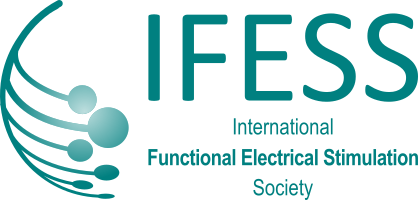Electrical stimulation therapy for facial nerve paralysis.
Presenters: Gerd Fabian Volk [1], Dirk Arnold [2], Maren Geitner [2], Jonas Ballmaier [2], Johannes Kraus [2], Katharina Steiner [3] & Sabrina Hölzer [4]
[1] Facial-Nerve-Center Jena, ENT-Department, Center for Rare Diseases Jena, Jena University Hospital, Germany; [2] UKJ, Jena, Germany; [3] FH Oberösterreich, Fakultät für Medizintechnik und Angewandte Sozialwissenschaften, Garnisonstraße 21, 4020 Linz, Austria; [4] “Multi-Generation Smart Community“, Fachbereich Wirtschaftsingenieurwesen, Ernst-Abbe-Hochschule Jena, Germany.
INDUSTRY SPONSORED
Workshop description: High therapy frequencies with up to several training units per day are crucial for the success of many rehabilitation programs. At the same time, such high therapy frequencies cannot be provided by human therapists due to the financial and personnel costs. Surface electrostimulation home training, possibly with computer support or tele medical elements, could be a solution here.
Study results for pure audio-visual controlled tele medical training, surface electrical stimulation home-training but also EMG-triggered electro-stimulation of the facial muscles to support facial movements will be presented and compared:

Surface electrostimulation can prevent atrophy of denervated facial muscles. By placing surface electrodes or needle electrodes in the right way, selective muscle stimulation and on that way specific facial movements can be evoked. By recording high quality, intramuscular EMG signals or multichannel ear EMGs, an automatic distinction between different facial movements is possible. Combining all these components, a closed-loop EMG-triggered electrical stimulation system could be capable of supporting the most important facial movements such as eye blink, eye closure and smile.
Therefore, such systems could serve as a valuable tool for rehabilitation, acting as a training system to support facial movement recovery. Additionally, the prospect of adapting this technology for implantable devices presents an intriguing avenue for future research.
Patient pathways, application scenarios, and ideas for future medical devices will be developed in an interactive exchange with the participants. Smart implants to treat facial paralysis with electrical stimulation could be an emerging application and a point of debate of our workshop.

